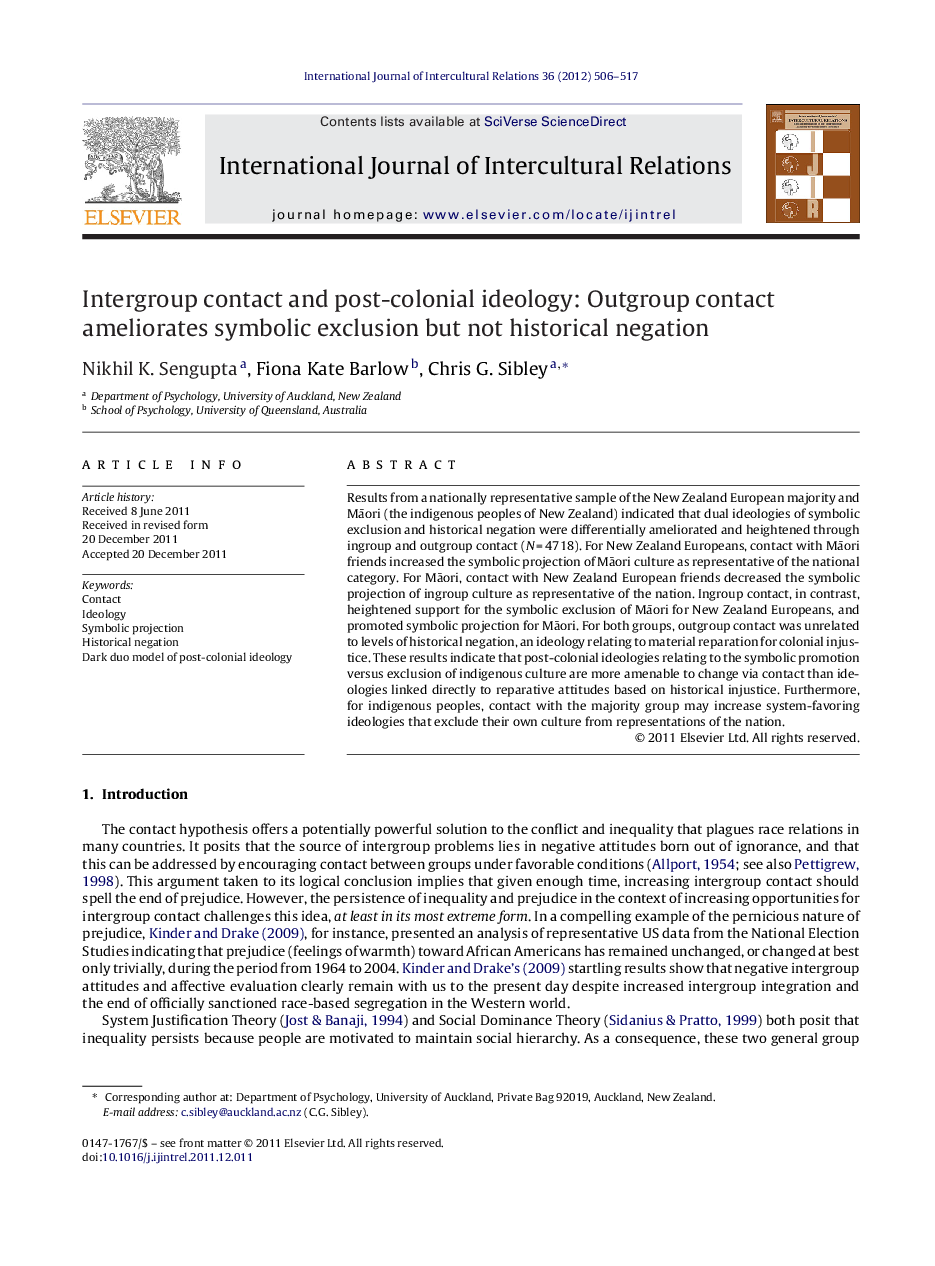| Article ID | Journal | Published Year | Pages | File Type |
|---|---|---|---|---|
| 947232 | International Journal of Intercultural Relations | 2012 | 12 Pages |
Results from a nationally representative sample of the New Zealand European majority and Māori (the indigenous peoples of New Zealand) indicated that dual ideologies of symbolic exclusion and historical negation were differentially ameliorated and heightened through ingroup and outgroup contact (N = 4718). For New Zealand Europeans, contact with Māori friends increased the symbolic projection of Māori culture as representative of the national category. For Māori, contact with New Zealand European friends decreased the symbolic projection of ingroup culture as representative of the nation. Ingroup contact, in contrast, heightened support for the symbolic exclusion of Māori for New Zealand Europeans, and promoted symbolic projection for Māori. For both groups, outgroup contact was unrelated to levels of historical negation, an ideology relating to material reparation for colonial injustice. These results indicate that post-colonial ideologies relating to the symbolic promotion versus exclusion of indigenous culture are more amenable to change via contact than ideologies linked directly to reparative attitudes based on historical injustice. Furthermore, for indigenous peoples, contact with the majority group may increase system-favoring ideologies that exclude their own culture from representations of the nation.
► Tests the effects of contact on the dark duo model of post-colonial ideology. ► Tests contact effects in a large and nationally representative New Zealand sample. ► Reports associations between contact and ideology for majority and minority group members. ► Shows that outgroup contact ameliorates symbolic exclusion but not historical negation.
